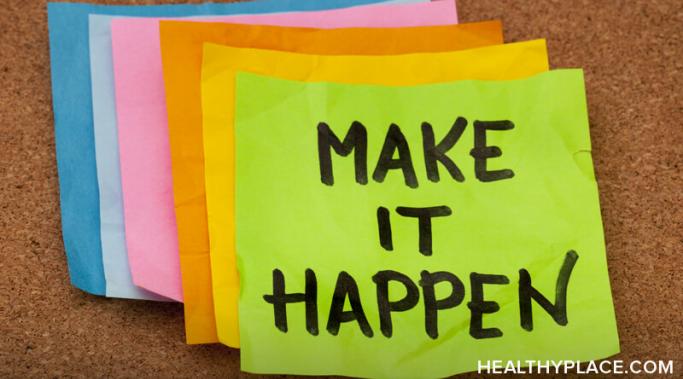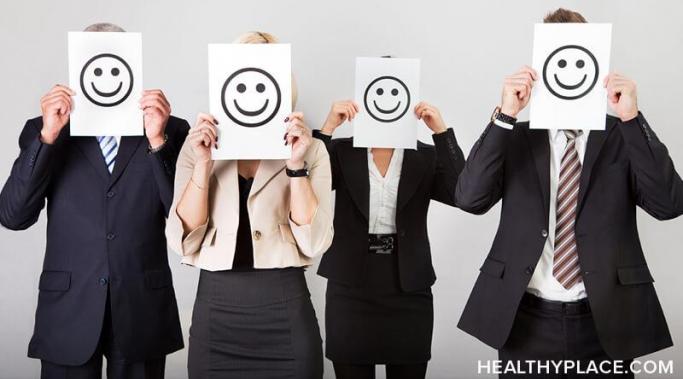Do you ever struggle to focus on work-related tasks because of bipolar disorder? A lack of focus and distractibility can occur in people who experience bipolar disorder and its episodes of mania and depression in bipolar disorder. These issues have affected my ability to learn and integrate new information and be efficient in executing important tasks. I have had to adapt new techniques to be successful at work and focus with bipolar disorder.
Work and Bipolar or Depression
Medication lapses at work can be detrimental to people with mental health issues. I have experienced a myriad of problems that came from a lapse in medication. These problems have included withdrawal symptoms, a resurgence of symptoms, the increased risk of relapse, and the risk of self-medication. There are many reasons why a person may have a lapse in medication in the workplace, but one that has really affected my mental health is insurance refusing to cover my medication.
It is essential to my wellbeing to have supportive friends in the workplace. We all need a support network that we can rely on when feeling down. I have always had one supportive colleague I can trust and rely on for support when experiencing symptoms of bipolar or depression. I navigate my mental health in the workplace by finding one person I can confide in. I set up one hour per week where we can talk openly about workplace stressors and my mental health. A supportive friend at work can be an advocate and provide emotional support.
You can learn how to support an employee with depression or bipolar. Employers play a big role in their employees' lives. Most people work 40-hour weeks and eight-hour days. This is a lot of time spent working, so it's important that those hours are supportive of each employee's wellbeing. I have had some bad experiences with prior workplaces and also some exceptional experiences. People with bipolar disorder or depression can be brilliant, hard-working, passionate employees, just like anyone else, and with a little extra help and accommodation, they can be very successful.
My name is Ashley Miller, and I am excited to join the "Work and Bipolar or Depression" blog at HealthyPlace. I was diagnosed with bipolar disorder in my early twenties, and although it has affected my life in many ways, I am much more than this diagnosis.
Saying goodbye is never easy, but it is crucial because everything ends. After writing for three years for "Work and Bipolar or Depression," my journey has taken a bittersweet turn. This is my last post about work and depression, and I want to express my gratitude to team HealthyPlace and my readers.
June is Pride Month, a time that People.com describes as "an entire month dedicated to the uplifting of lesbian, gay, bisexual, transgender, queer, etc. (LGBTQ+) voices, a celebration of LGBTQ+ culture and the support of LGBTQ+ rights." Like me, you have probably noticed various organizations post about the event on social media to showcase their solidarity. However, putting up rainbows online is often a move to appear progressive. Workplaces need to put in work every day to make a change. Because even today, queer employees are widely discriminated against at work -- to the extent that it harms their mental health.
Here's the thing: depression is a mood disorder that impacts all areas of one's life. I am not saying this to be dramatic or bleak. All I am doing is stating a fact as a 31-year-old living with depression since the age of 13. Anyway, just as no amount of money can make up for a toxic work environment, no amount of ambition or purpose can make up for the havoc of depression. Therefore, it is crucial for people with it to redefine professional success.
When I found out that Yahoo Answers shut down forever on May 4, 2021, I felt like a dear friend had passed away. After all, the platform helped me figure out my purpose when I was depressed, and life made no sense whatsoever.
I believe there is nothing unprofessional in being honest about your mental health at work. Since emails are an official means of communication in workplaces everywhere, employees should ensure they are real. Of course, the onus is on the employer because anyone in a mental health-unfriendly organization will hesitate to disclose mental health issues. But this does not mean employees are powerless. And in a pandemic world, where more and more people are suffering from conditions like depression, genuine emails are crucial.









